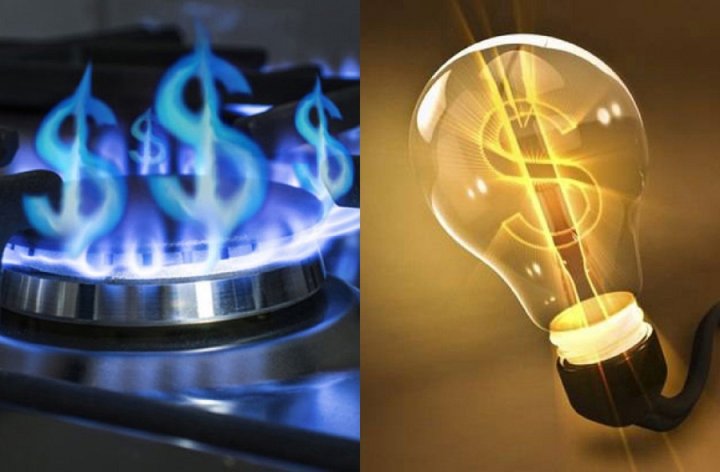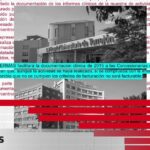
The government has already authorized the next rate increases for energy, gas and water public services, to which are added other services that affect the pockets of working families such as health with increases in prepaid bills, fuel and telecommunications, which in certain cases exceed the official guideline of 2% monthly.
An average household in the Buenos Aires Metropolitan Area (AMBA) that does not receive subsidies needed December $143,819 to meet the payment of electricity, gas, water and transportation rates, according to a survey by the Rates and Subsidies Observatory of the Interdisciplinary Institute of Political Economy (IIEP), of UBA and Conicet. The cost of this basket of public services shows a 402% increase compared to the same month last yearcoinciding with Javier Milei’s year in office.
One by one, the increases that will begin to take effect from January 2025 and that continue to maintain the pace of inflation.
The privatized companies win: how much do electricity and gas increase in January
Next month the service gas will rise 1.82% and electricity, 1.6%. In addition, the Ministry of Energy wants to move forward with the reduction of subsidies and will implement differentiations starting in February for “peak” or “off-peak” consumption, which establishes different prices depending on the time of day in which it is consumed.
The increases planned for next month imply an increase of 2.5% for gas distribution and transportation companies, and 4% for electricity companies. There will also be an increase in the price of gas at the point of entry into the transportation system (PIST). Rate increases continue while the purchasing power of salaries and pensions is not recovered. They celebrate the privatized companies that benefit from the rate increases.
On average, during 2024 electricity and gas bills rose 268% and 531% respectively.
The prices that make up the item “Housing, water, electricity, gas and other fuels” are one of those that most affect the pockets of families, they rose 230.7% between January and November 2024, while the average increase in prices of Accumulated CPI is less than half: 112%.
Javier Milei’s first year in office ends with 838,466 households without subsidies applied to your electricity rates and 292,612 in the case of natural gasaccording to the Registry of Access to Energy Subsidies (RASE).
According to the Ministry of Energy, high-income users (N1) pay 93% of the cost of electricity generation, while low-income users (N2), 26%, and middle-income households (N3), 41%.
In the case of gas, high-income users (N1) pay 85% of the cost, while low-income users (N2) pay 31%, and middle-income households (N3) pay 38%.
Water also rises
Another of the regulated price items is the drinking water service for users of the AySA company, with a rise of 1% in the month of January.
According to the State entity, this is a possibility thanks to the “operational balance and the inflationary slowdown registered in recent months”, which generated an “exceptional tariff adjustment” of that percentage starting in January 2024. During this year There has already been a brutal price adjustment, with an average increase in AySA’s bill of 317 %.
According to the water supplier company, the average monthly bill without taxes will be $26,277 for users in the high zone level; for those in the medium zonal level at $23,863, and for those in the low zonal level it drops at $19,175.
Fuels
YPF announced that it will increase the price of its fuels starting Friday, January 3. On average the increase will be 1.75% and will reach suppliers throughout the country.
In this way, the nafta super will go from $1,108 to $1.127while common diesel will jump from $1,123 to $1,142 approximately, in the Autonomous City of Buenos Aires (CABA).
In turn, the liter of nafta premiumwhich currently costs $1,370, will reach $1.394 and the gasoil premium will rise from $1,123 to a value of around $1,142 per liter.
Rentals
For its part, for all rental contracts that are governed by the legislation prior to the repeal carried out by Javier Milei with the Mega DNU, and that continue to be used by many contracts between individuals even with the repealed law, the Rental Contract Index Location (ICL) foresees an annual increase of 190.69% in the first month of 2025. This index is made up of an average between inflation measured by CPI and the evolution of salaries.
Rental contracts without legislation imply all kinds of harmful conditions for tenants, with quarterly renewals, short-term contracts sometimes less than a year, prices tied to the dollar or inflation, very high income requirements, among others.
Prepaid private medicine
Prepaid medicine entities informed their members of increases of between 3% and 3.9%, according to the plan. Between 2022 and 2024, prepaid fees increased by 435% on average, while health provider fees only grew between 160% and 224%. A deregulated sector where only businessmen win.
Telecommunications
Another of the items with strong increases are the bills of mobile phone, internet and cable television companies. The increases will be between 3.6% and 8% next January.
Lighting, Sweeping and Cleaning in CABA (ABL)
In the City of Buenos Airesthe changes of budget 2025 that the legislature approved imply that for the payment of Lighting, Sweeping and Cleaning there will be a table with ten scales instead of the current seven, with a progressive scheme based on the homogeneous fiscal valuation (VFH).
According to the regulations, the properties will be divided into three geographical areas:
Zone I (South): 2% increase.
Zone II (Centre): 3% increase.
Zone III (North): 4% increase.
In turn, properties with a VFH less than or equal to $26.6 million will have a cap of 20% in the annual tax update.
Properties with values between $26.6 million and $38 million will not be able to exceed a 35% increase, while those with VFH greater than $38 million will have updates for inflation.
Source: www.laizquierdadiario.com

